Authors & editors
ANU Press has collaborated with a diverse range of authors and editors across a wide variety of academic disciplines. Browse the ANU Press collection by author or editor.
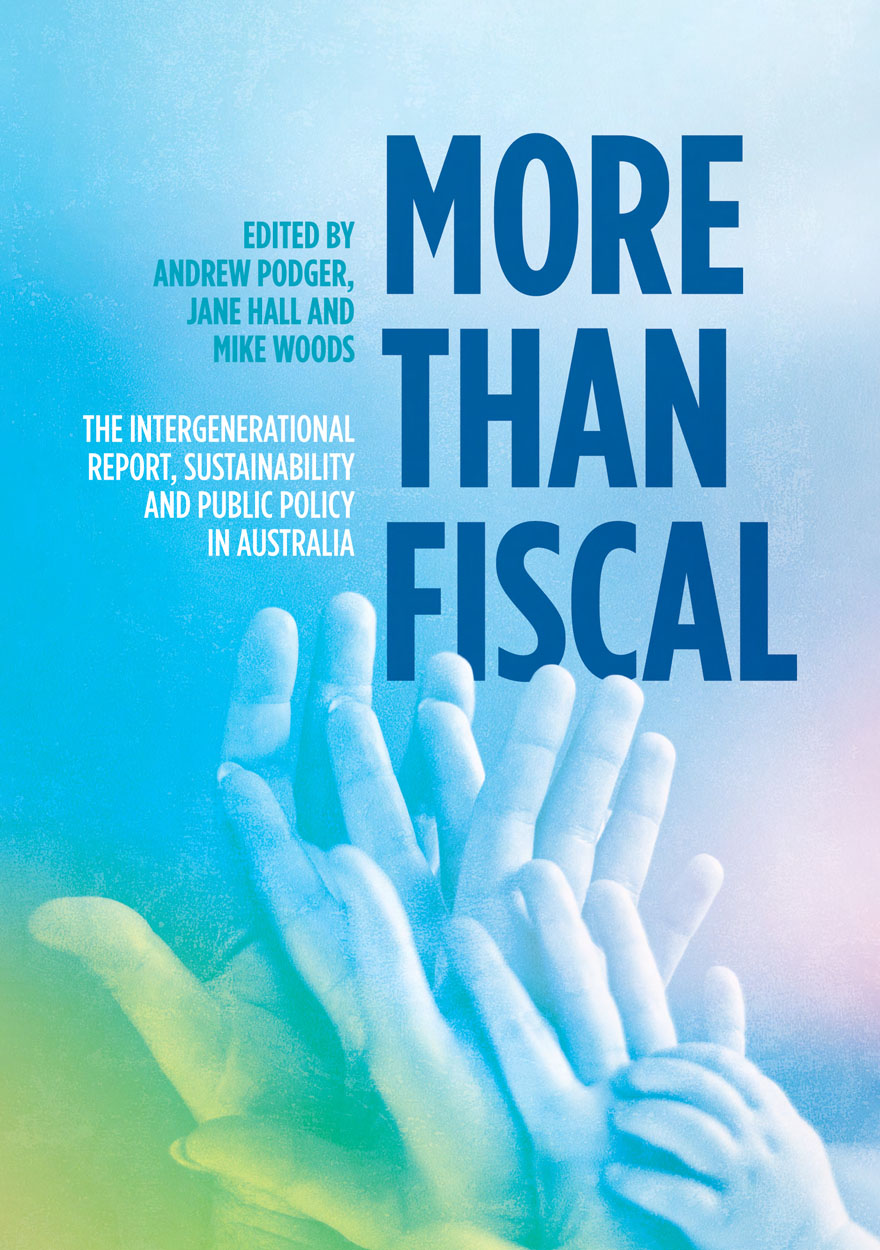
More Than Fiscal »
The Intergenerational Report, Sustainability and Public Policy in Australia
Publication date: May 2023
Every five years, the Australian treasurer is required to publish an intergenerational report (IGR), which examines the long-term sustainability of current government policies and seeks to determine how demographic, technological and other structural trends might affect the economy and the budget in coming decades. Despite these lofty objectives, the five IGRs produced from 2002 have received only muted applause. Critics say that they are too mechanical, too narrow and too subject to the views of the government of the day and that they don’t provide the intended wake-up call for public understanding of looming economic, social and environmental issues.
This analysis of the most recent IGR (2021) is based on a workshop hosted by the Academy of the Social Sciences in Australia. While finding that the 2021 IGR is an improvement on the previous report (2015), the authors identify several fiscal and broader policy issues that deserve greater attention, including Australia’s structural deficit, rising inequality and the impacts of climate change. They argue that the report fails to discuss the policies required to support greater resilience against future shocks, including the case for earlier budget repair. They propose that future IGRs be prepared with greater independence, cover all levels of government, have more transparent analysis and draw upon a wider ‘wellbeing’ approach to long-term sustainability.
This book aims to attract close attention from public officials and politicians and generate constructive debate in the community.
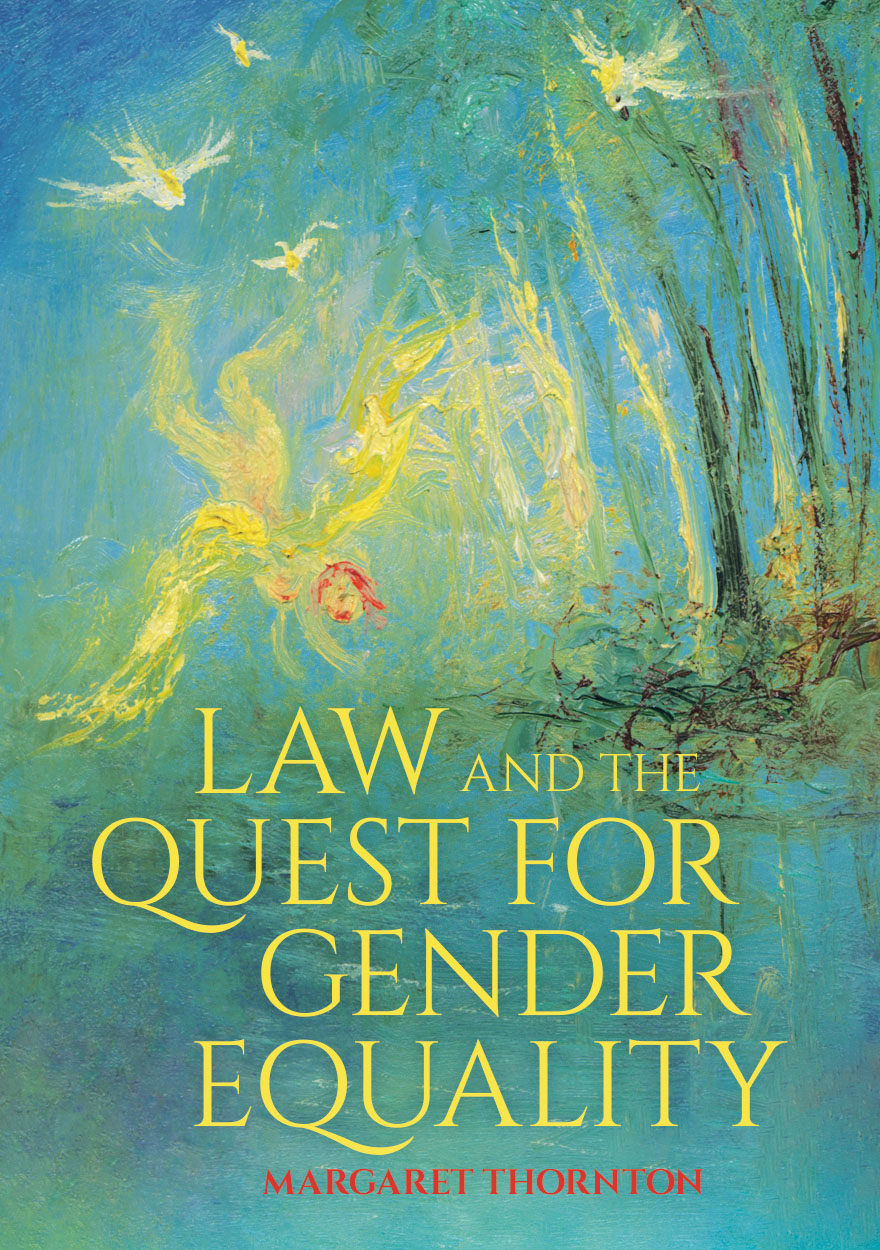
Law and the Quest for Gender Equality »
Authored by: Margaret Thornton
Publication date: April 2023
For centuries, law was used to subordinate women and exclude them from the public sphere, so it cannot be expected to become a source of equality instantaneously or without resistance from benchmark men—that is, those who are white, heterosexual, able-bodied and middle class. Equality, furthermore, was attainable only in the public sphere, whereas the private sphere was marked as a site of inequality; a wife, children and servants could never be the equals of the master. Despite their ambivalence about the role of law and its contradictions, women and Others felt that they had no alternative but to look to it as a means of liberation.
This skewed patriarchal heritage, the subtext of this collection of essays, has continued to impede the quest for equality by women and Others. It informs not only gender relations in the private sphere, as illustrated by domestic violence and sexual assault, but also the status of women in the public sphere. Despite the fact that women have entered the paid workforce—including the professions—in large numbers, they are still expected to assume responsibility for the preponderance of society’s caring. The essays show how maternal and caring roles, which are still largely viewed as belonging to an unregulated private sphere, continue to be invoked to detract from the authority of the feminine in the public sphere. The promise of antidiscrimination legislation in overcoming the heritage of the past is also shown to be somewhat hollow.
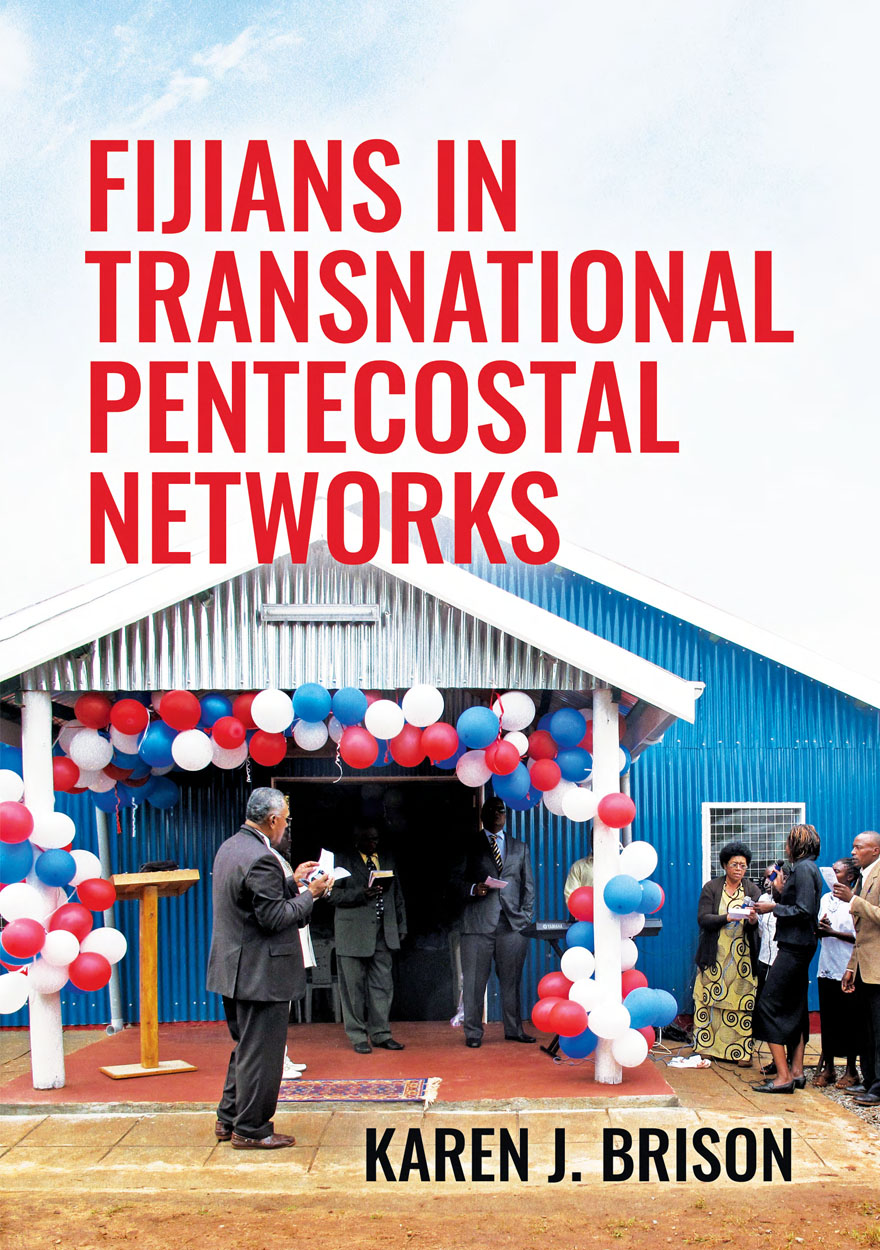
Fijians in Transnational Pentecostal Networks »
Authored by: Karen J. Brison
Publication date: April 2023
In Fijians in Transnational Pentecostal Networks, Karen J. Brison examines the Harvest Ministry, an independent Fijian Pentecostal church that sends Fijian and Papua New Guinean missionaries to East Africa, Southeast Asia, Europe and elsewhere. After studying the ministry’s main church in Suva for several years, Brison visited its missionaries and their local partners in East Africa and Papua New Guinea. The result of those visits, this book provides an unusual insight into Pentecostal churches in the global south, arguing that they seldom produce novel visions of Christianity and world inequality. It also offers new perspectives, by situating Pacific island churches within a global community and by examining social class formation, which is increasingly important in the Pacific.
Pentecostalism has a consistent culture all over the world, but shared themes take on different meanings in the face of local concerns. In Fiji, Pentecostal churches are part of middle-class projects constructing leadership roles and highlighting transnational ties for a growing group of indigenous urban professionals. In Papua New Guinea, church leaders promote the idea that youths with blocked aspirations are tough and humble and therefore make invaluable missionaries. In East Africa, Pentecostal churches are part of a networking strategy that entrepreneurial individuals see as essential to survival. As these local groups each use Pentecostalism to advance their own agenda, they endorse Euro-American racial stereotypes and ideologies about social evolution and progress.

Wehali: The Female Land »
Traditions of a Timorese Ritual Centre
Authored by: Tom Therik
Publication date: March 2023
Wehali defines itself as the ritual centre of the island of Timor. As a ritual centre, Wehali continues to be the residence of a figure of traditional authority on whom, in the 18th century, the Dutch conferred the title of Kaiser (Keizer) and to whom the Portuguese gave the title of Emperor (Imperador). At one time, Wehali was the centre of a network of tributary states, which both the Dutch and Portuguese regarded as paramount to the political organisation of the island. This book is a study of Wehali in its contemporary setting as it continues to maintain its rituals and traditions.
Significantly, Wehali is a ‘Female’ centre and its ‘Great Lord’ is considered to be a ‘Female’ lord. Whereas other Timorese societies are organised along male lines, in Wehali, all land, all property, all houses belong to women. Men are exchanged as husbands in marriage. Wehali is thus considered to be the ‘husband-giver’ to the surrounding realms on the island that look to its inner power as their source of life.
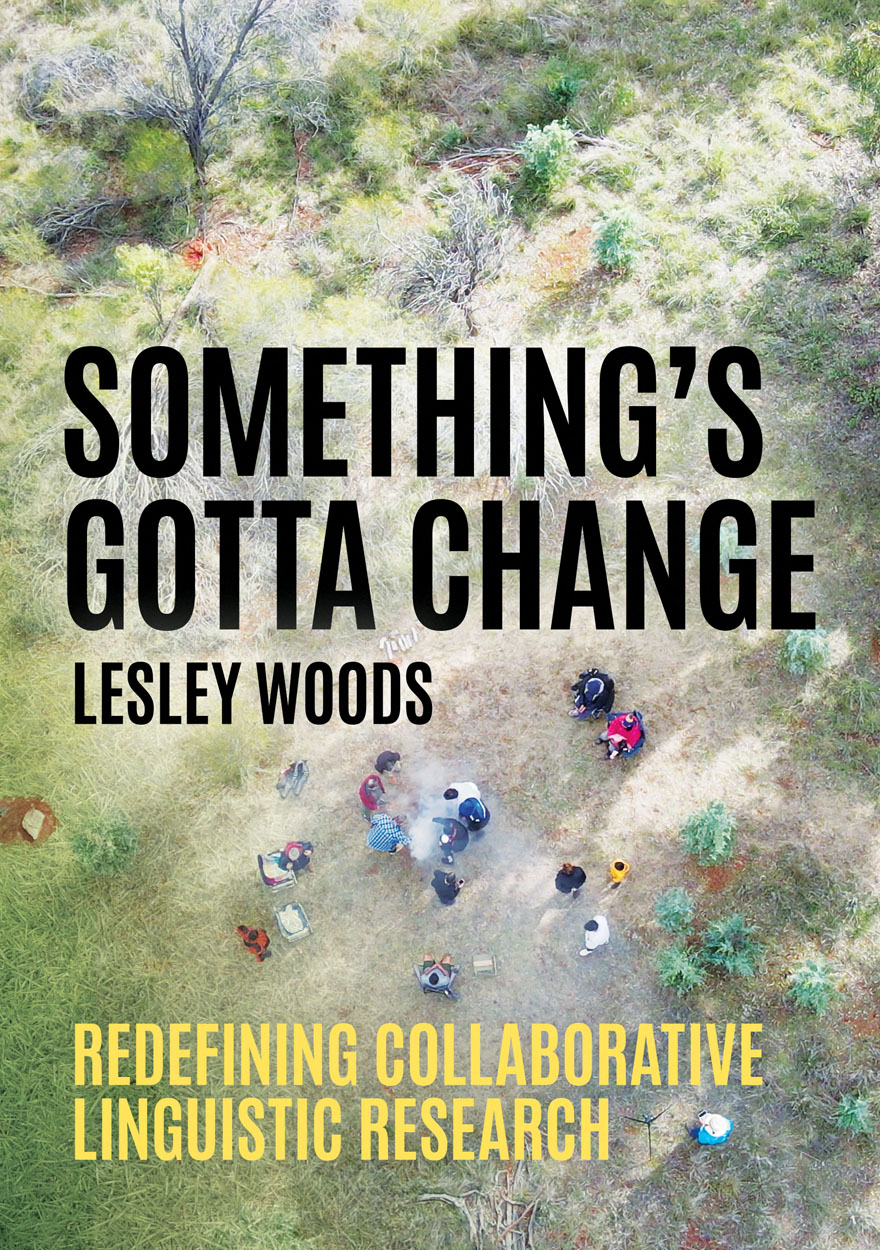
Something's Gotta Change »
Redefining Collaborative Linguistic Research
Authored by: Lesley Woods
Publication date: March 2023
Indigenous people are pushing back against more than 200 years of colonisation and rejecting being seen by the academy as ‘subjects’ of research.
A quiet revolution is taking place among many Indigenous communities across Australia, a revolution insisting that we have control over our languages and our cultural knowledge – for our languages to be a part of our future, not our past. We are reclaiming our right to determine how linguistic research takes place in our communities and how we want to engage with the academy in the future.
This book is an essential guide for non-Indigenous linguists wanting to engage more deeply with Indigenous communities and form genuinely collaborative research partnerships. It fleshes out and redefines ethical linguistic research and work with Indigenous people and communities, with application beyond linguistics.
By reassessing, from an Indigenous point of view, what it means to ‘save’ an endangered language, Something’s Gotta Change shows how linguistic research can play a positive role in keeping (maintaining) or putting (reclaiming) endangered languages on our tongues.
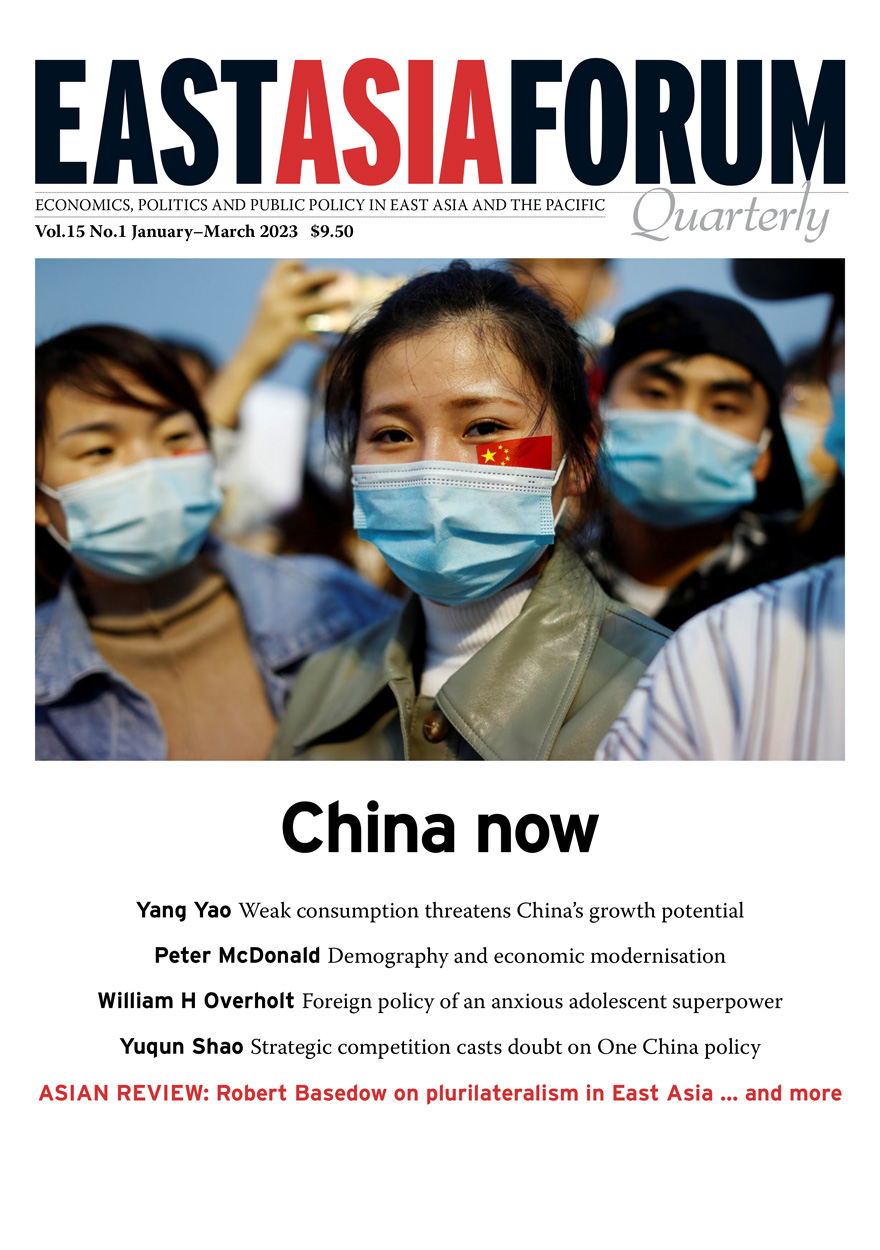
East Asia Forum Quarterly: Volume 15, Number 1, 2023 »
Publication date: March 2023
While many rejoice in something like ‘normality’ after the years of disruption caused by the global COVID-19 pandemic, the world will not resume its former shape. Nowhere is this more evident than in China. After the disastrous economic performance of 2022, a recalibration of China’s policies was essential—including by retreating from zero-COVID and, under the banner of ‘Chinese-style modernisation’, relaxing restrictions on the free market. China’s greatest post-pandemic challenge, however, will be the terms of its engagement with the outside world. Its claims to both developing-nation status and global leadership define China, some say, as an ‘anxious adolescent superpower’. This issue of East Asia Forum Quarterly canvasses a range of shifts in Chinese society and daily life as well as policy direction: describing women’s leading role in the calls for social change, explaining how China’s demographic crunch is unlikely to affect its economic modernisation over the coming two decades, examining the difficulties faced by rural migrants and in investing in the education of the rural young, and detailing the public response to the poorly understood social credit system.
Download for free
Not available for purchase
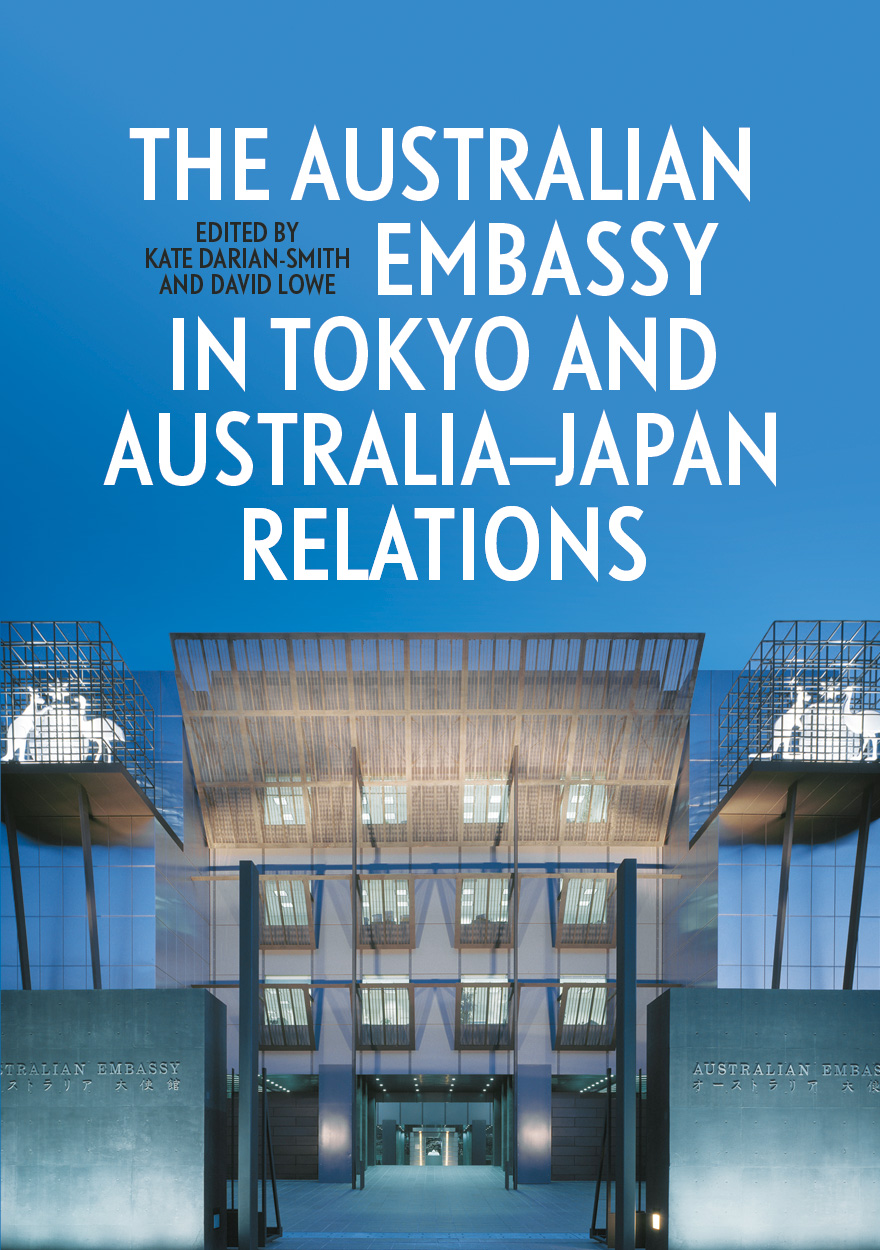
The Australian Embassy in Tokyo and Australia–Japan Relations »
Edited by: Kate Darian-Smith, David Lowe
Publication date: March 2023
Relations between Australia and Japan have undergone both testing and celebrated times since 1952, when Australia’s ambassadorial representation in Tokyo commenced. Over the years, interactions have deepened beyond mutual trade objectives to encompass economic, defence and strategic interests within the Indo-Pacific region and beyond. This ‘special relationship’ has been characterised by the high volume of people moving between Australia and Japan for education, tourism, business, science and research. Cultural ties, from artists-in-residence to sister-city agreements, have flourished. Australia has supported Japan in times of need, including the aftermath of the 2011 Tohoku earthquake.
This book shows how the Australian embassy in Tokyo, through its programs and people, has been central to these developments. The embassy’s buildings, its gardens and grounds, and, above all, its occupants—from senior Australian diplomats to locally engaged staff—are the focus of this multidimensional study by former diplomats and expert observers of Australia’s engagement with Japan. Drawing on oral histories, memoirs, and archives, this volume sheds new light on the complexity of Australia’s diplomatic work in Japan, and the role of the embassy in driving high-level negotiations as well as fostering soft‑power influences.
‘With a similar vision for the Indo-Pacific region and a like-minded approach to the challenges facing us, Australia and Japan have become more intimate and more strategic as partners. I am very pleased to see this slice of Australian diplomatic history so well accounted for in this book.’
— Jan Adams AO PSM, Secretary, Australian Department of Foreign Affairs and Trade; Australia’s Ambassador to Japan, November 2020–June 2022
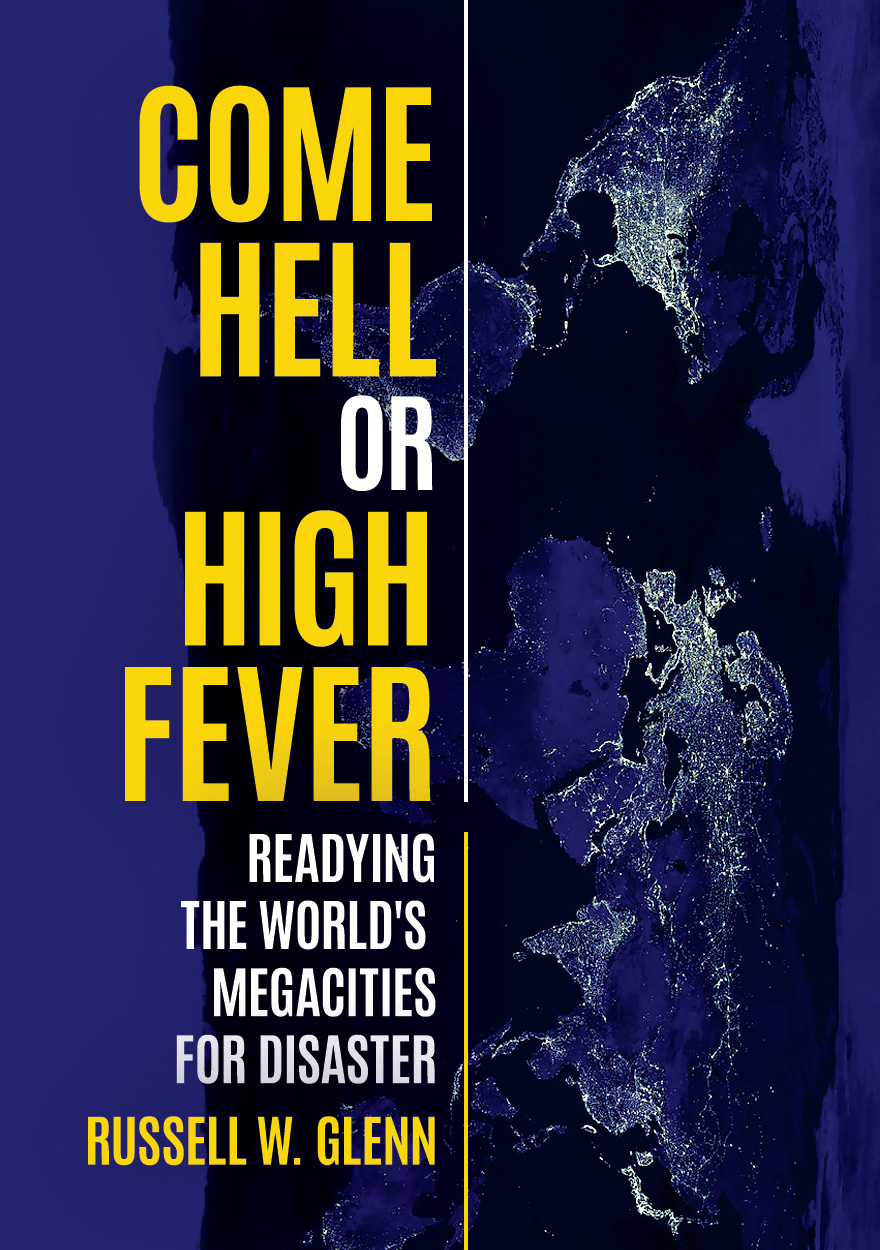
Come Hell or High Fever »
Readying the World's Megacities for Disaster
Authored by: Russell W. Glenn
Publication date: January 2023
‘Nations appear and fall, but cities endure and rediscover how to succeed. In this meticulously defined and researched book, Glenn presents ideas for minimising suffering during urban catastrophes. His urgency identifies risks held in urban areas by 3.5 billion people. These people are many of us: as urban populations occupying 3 per cent of our planet’s land area, drawing water from 41 per cent of the world’s ground surface, consuming 60 to 80 per cent of global energy and achieving 80 per cent of the world’s economic productivity. For Glenn, our resilience—through diversity in preparation, survival and recovery—includes comprehensive approaches that are sustained in duration, orchestrated in bringing all necessary capabilities to bear, layered in approach and early in application.’
—Major General Chris Field, Australian Army
‘The time to prepare for the inevitable is now. Dr Glenn has written a book that should be read by all leaders, planners and responders who may be called upon in an urban disaster, whether natural or man-made. Military leaders should give it particular attention, as the human race is increasingly concentrated in its cities. Understanding how to wage war in dense urban terrain is essential, especially if a nation also seeks to hold the moral high ground. The fruits of any victory won among people that fails to consider the lessons in Come Hell or High Fever are likely to be very bitter.’
—Lieutenant General Sean MacFarland, United States Army (retired)
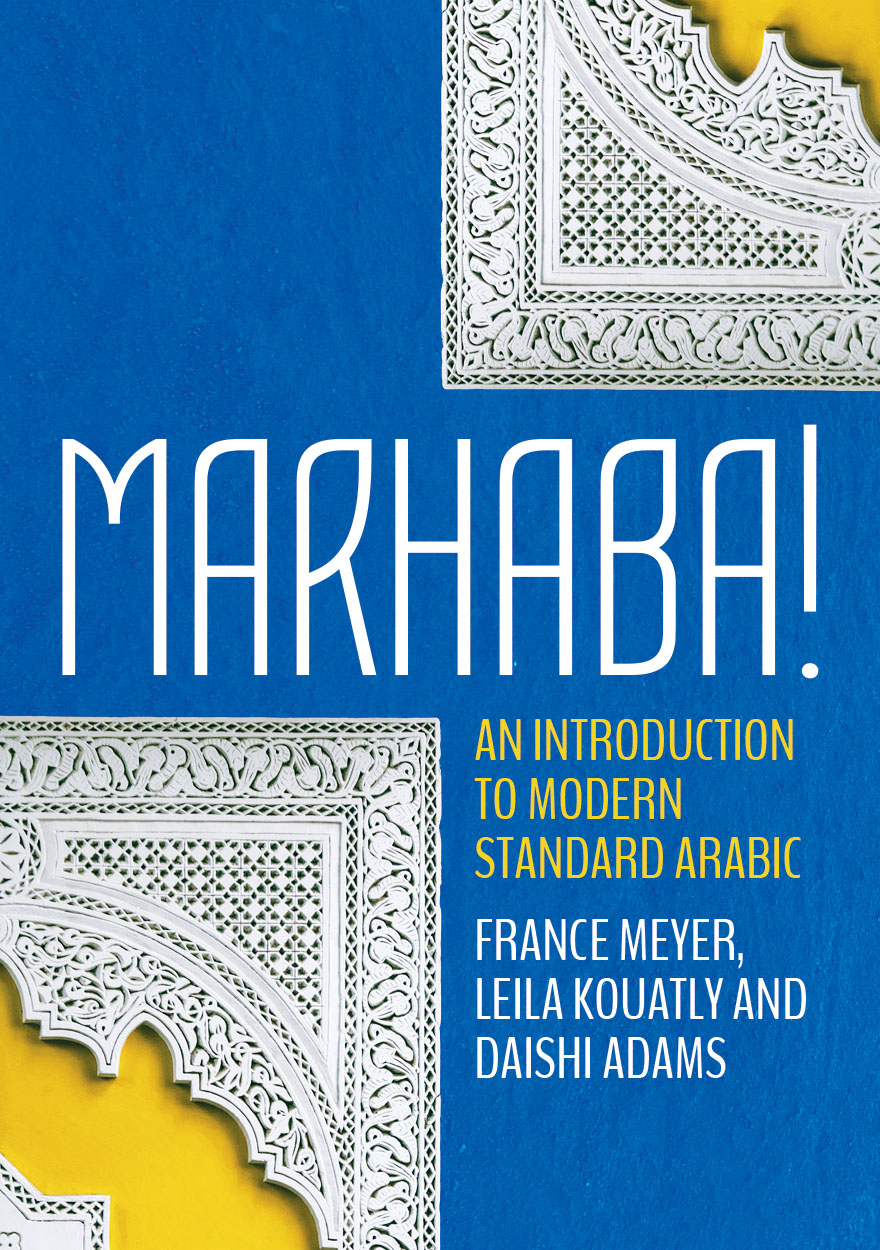
Marhaba! An Introduction to Modern Standard Arabic »
Publication date: January 2023
Marhaba! An Introduction to Modern Standard Arabic is a unique student handbook specifically written and designed for flexible learning. It consists of 23 lessons that include a variety of online interactive tasks supported by a range of audio resources. Online learners develop reading, listening, speaking and writing skills at the introductory level of Modern Standard Arabic while getting an insight into the culture of the Arab world. This publication addresses the needs of a mobile and diverse cohort of Australian and international students who seek to acquire a basic knowledge of the grammar and syntax of Modern Standard Arabic, a form of the language common to all peoples of the Arab-speaking world, from North Africa to the Middle East and Asia.
Download for free
Not available for purchase

Made in China Journal: Volume 7, Issue 2, 2022 »
Publication date: December 2022
In 2020, Chinese Communist Party general secretary Xi Jinping pledged to ‘transition to a green and low-carbon mode of development’, as well as to ‘peak the country’s CO2 emissions before 2030 and achieve carbon neutrality before 2060’. Xi’s pledge offered a tangible example of what has come to be known as the ecological civilisation (生态文明)—the idea of engineered harmony between humans and nature that was recently incorporated into the Constitution of the People’s Republic of China. But what kind of engineering is required for sustainable transitions at this scale and pace? Through which political concepts and technical practices could such a harmonious rebalancing of China’s resource-devouring development be envisioned and achieved?
This issue of the Made in China Journal addresses these questions by borrowing political theorist John Dryzek’s rereading of the Greek myth of Prometheus. Inspired by the story of a demigod who stole the technology of fire for the sole purpose of human advancement, Prometheanism describes an eco-modernist orientation that perceives the Earth as a resource whose utility is determined primarily by human needs and interests and whose environmental problems are overcome through continuous political and technological innovation. In contrast with other environmental perspectives, Prometheanism prioritises human interests and needs over those of ecosystems or the individual needs of other lifeforms. Through this framework, we asked our contributors to offer their takes on the following questions: To what extent can Xi’s dream of an ecological civilisation be understood in terms of techno-optimism and the anthropocentrism that characterise Prometheanism? What price is China paying in its effort to transition towards a heavily engineered ‘sustainable’ market utopia?
Download for free
Not available for purchase
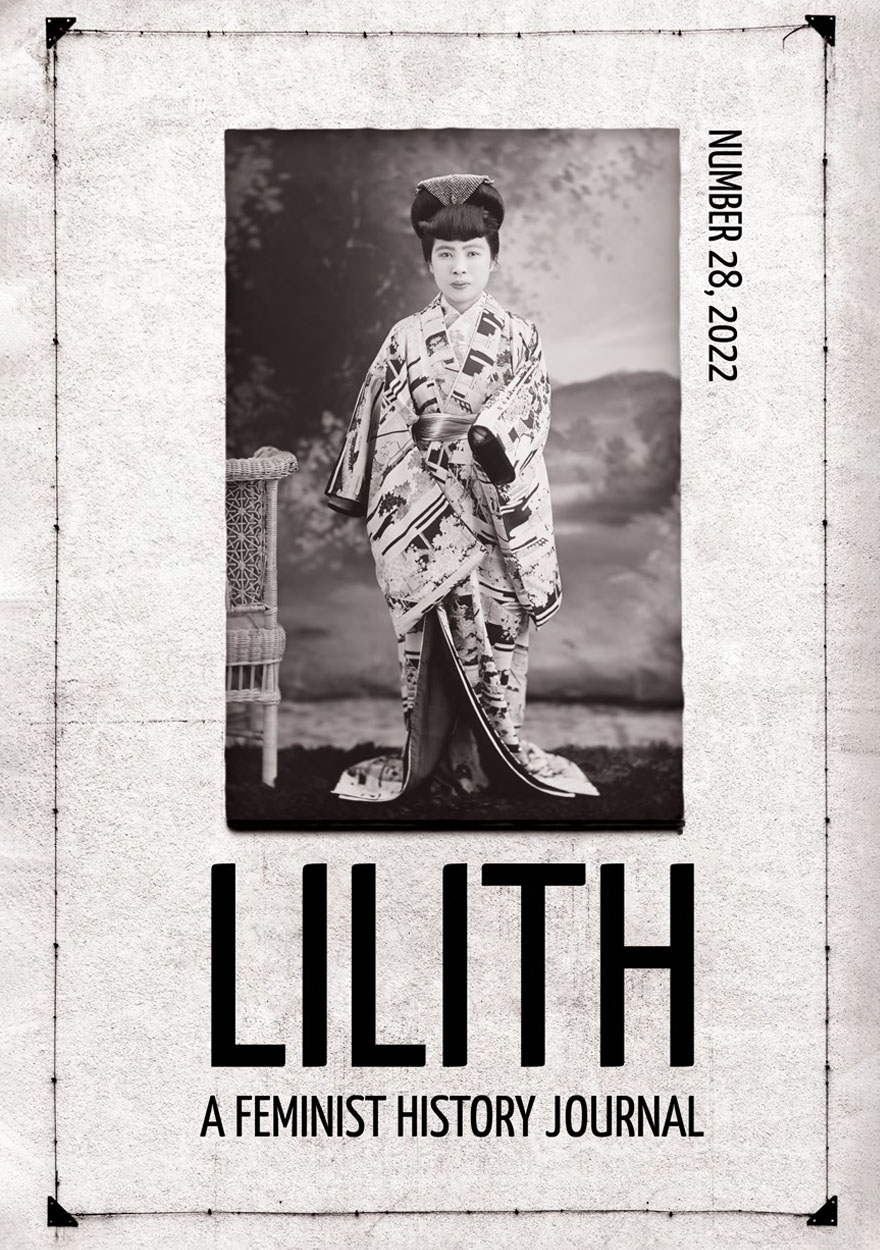
Lilith: A Feminist History Journal: Number 28 »
Publication date: December 2022
New research in this issue of Lilith includes studies of feminist vegetarian activism in Victorian England; the lives of Japanese businesswomen in North Queensland before 1941; negotiations of gender amongst women combatants in Tigray, Ethiopia; and the impacts of the Covid-19 pandemic on women. Each of the four research articles draws upon new sources and interpretations that shed light on the varied experiences of women within and beyond Australia, often challenging established norms or assumptions about progress.
In ‘Vegetarians, Vivisection and Violationism’, Ruby Ekkel explores the centrality of vegetarianism to the activities and lived experience of noted Victorian activist Anna Kingsford. Tianna Killoran’s article ‘Sex, soap and silk’ draws on newly accessible sources in moving beyond traditional narratives that characterise Japanese women in interwar North Queensland as impoverished sex workers. In ‘A Soldier and a Woman’, Francesca Baldwin examines how women combatants in Tigray, Ethiopia, negotiated the connections and collisions between soldiering and womanhood during and after the 1974–91 civil war. Petra Brown and Tamara Kayali Browne’s article ‘Relational Autonomy: Addressing the Vulnerabilities of Women in a Global Pandemic’ explores how the individualistic/atomistic model of autonomy in responses to Covid-19 has disproportionately disadvantaged women.
This issue also contains nine short essay responses from experienced gender scholars—including Ann Curthoys, Sharon Crozier-De Rosa, Catherine Kevin, Ann McGrath, Janet Ramsey, Yves Rees, Madeleine C. Seys, Jordana Silverstein, and Zora Simic—to the question ‘What does it mean to do feminism in 2022?’ These essays reveal the political power of feminist history-making, since, as Ann Curthoys argues in her essay, feminist history is itself a form of activism.
Taken together, these research articles and essays, along with the editorial, demonstrate the fallibility of the notion of history being a narrative of linear progress without relevance to our current reality. They urge against political complacency about the Covid-19 pandemic, colonialism or women's oppression as existing only in the past.
Download for free
Not available for purchase
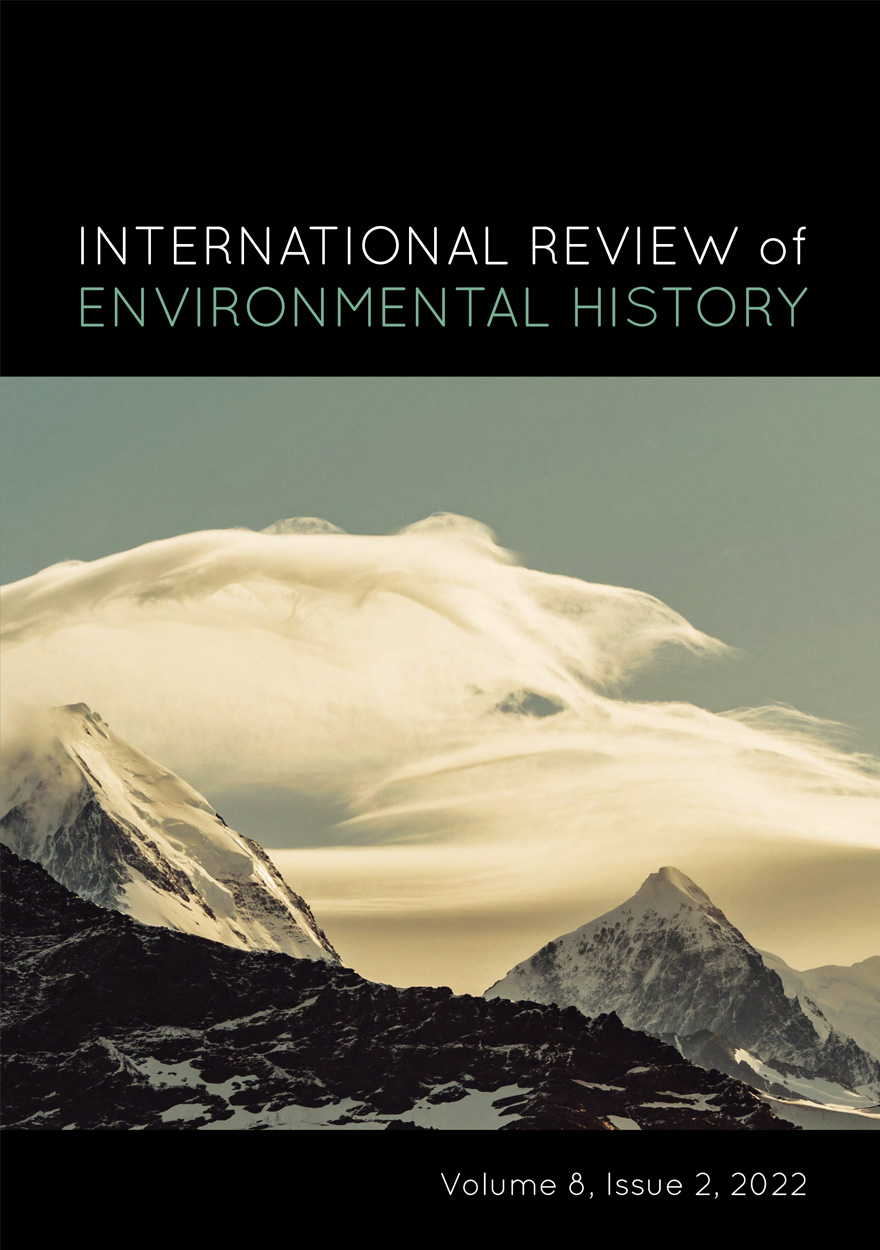
International Review of Environmental History: Volume 8, Issue 2, 2022 »
Edited by: James Beattie, Brett Bennett
Publication date: December 2022
The latest issue of the International Review of Environmental History ranges widely and deeply across several topics, periods and continents. The first part contains six articles, on environmental history teaching; ancient populations and plague; European geographical knowledge of India; environment, architecture and design; introduced ship-borne rats and mice; and environmental change on sub-Antarctic islands.
The second part is a special-issue section, edited by Shoko Mizuno (Komazawa University, Tokyo), on the hybridity of colonial and postcolonial forestry in environmental history. Its articles investigate the production and circulation of knowledge in colonial British, postcolonial and international forestry networks, including during the development of the East Pegu Yoma forestry project in Burma (Myanmar) and the spread of invasive lantana in India.
Download for free
Not available for purchase
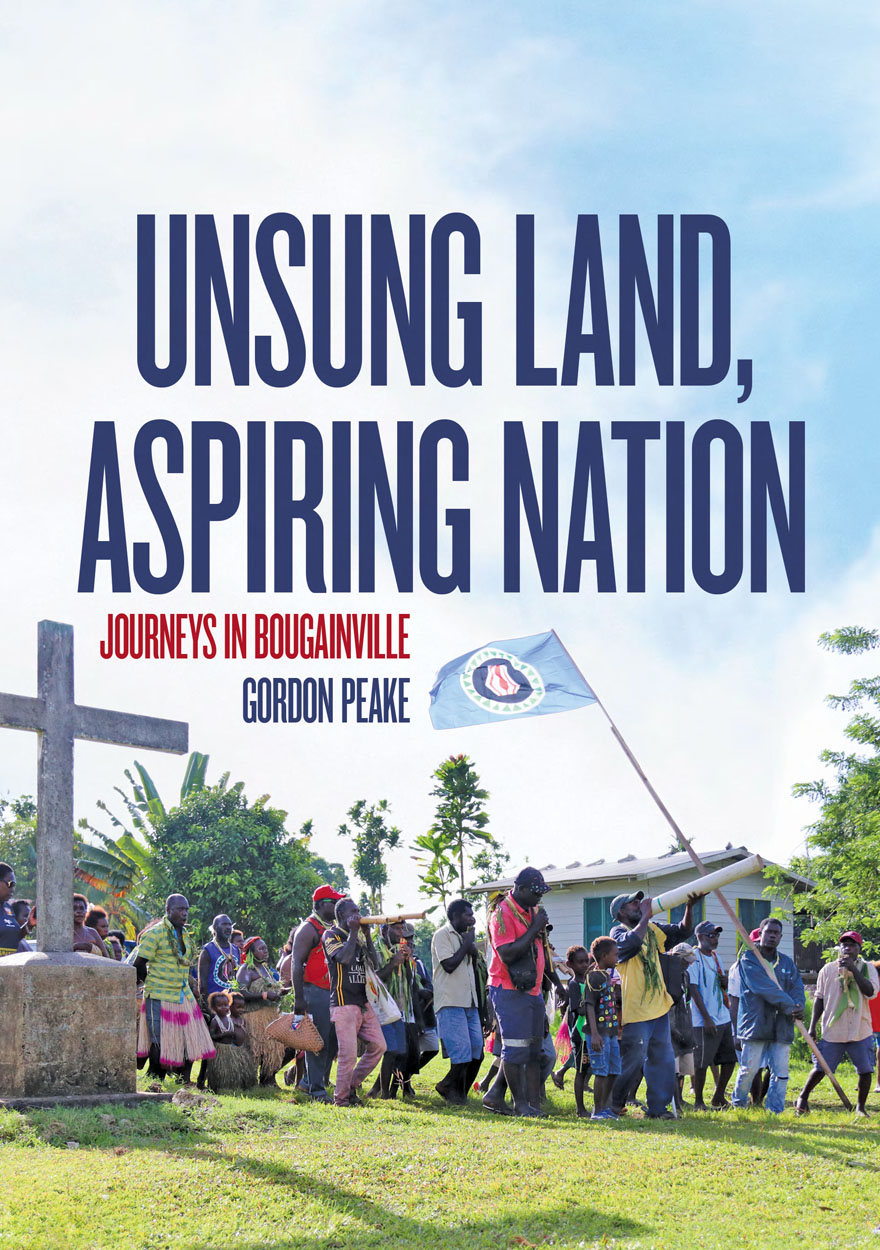
Unsung Land, Aspiring Nation »
Journeys in Bougainville
Authored by: Gordon Peake
Publication date: December 2022
In 2016, Gordon Peake answers a job advertisement for a role with the government of the Autonomous Region of Bougainville, a collection of islands on the eastern fringe of Papua New Guinea looking to strike out as a country of its own.
In his day job he sees at first hand the challenges of trying to stand up new government systems. Away from the office he travels with former rebels, follows an anthropologist’s ghost and visits landmarks from the region’s conflict. In 2019, he witnesses joy and euphoria as the people of Bougainville vote in a referendum on their future.
Out of these encounters emerges an unforgettable portrait of this potential nation-in-waiting.
Blending narrative history, travelogue and personal reminiscences, Unsung Land, Aspiring Nation is an engaging memoir as well as an insightful meditation on the realities of nation-making and international development.
‘Heartfelt and honest. This book is an insightful read and a valuable addition to scholarship on Bougainville’s journey to peace.’
— Joseph Nobetau, former Chief Secretary to the Autonomous Bougainville Government
‘An excellent piece of engaged travel writing. With first-hand observation and curiosity, Gordon has produced a deeply informed, compelling and evocative account of war, survival and nation-building in what may become the world’s newest country.’
— Tom Bamforth, author of The Rising Tide: Among the Islands and Atolls of the Pacific Ocean
Unsung Land, Aspiring Nation is also available as an audiobook.
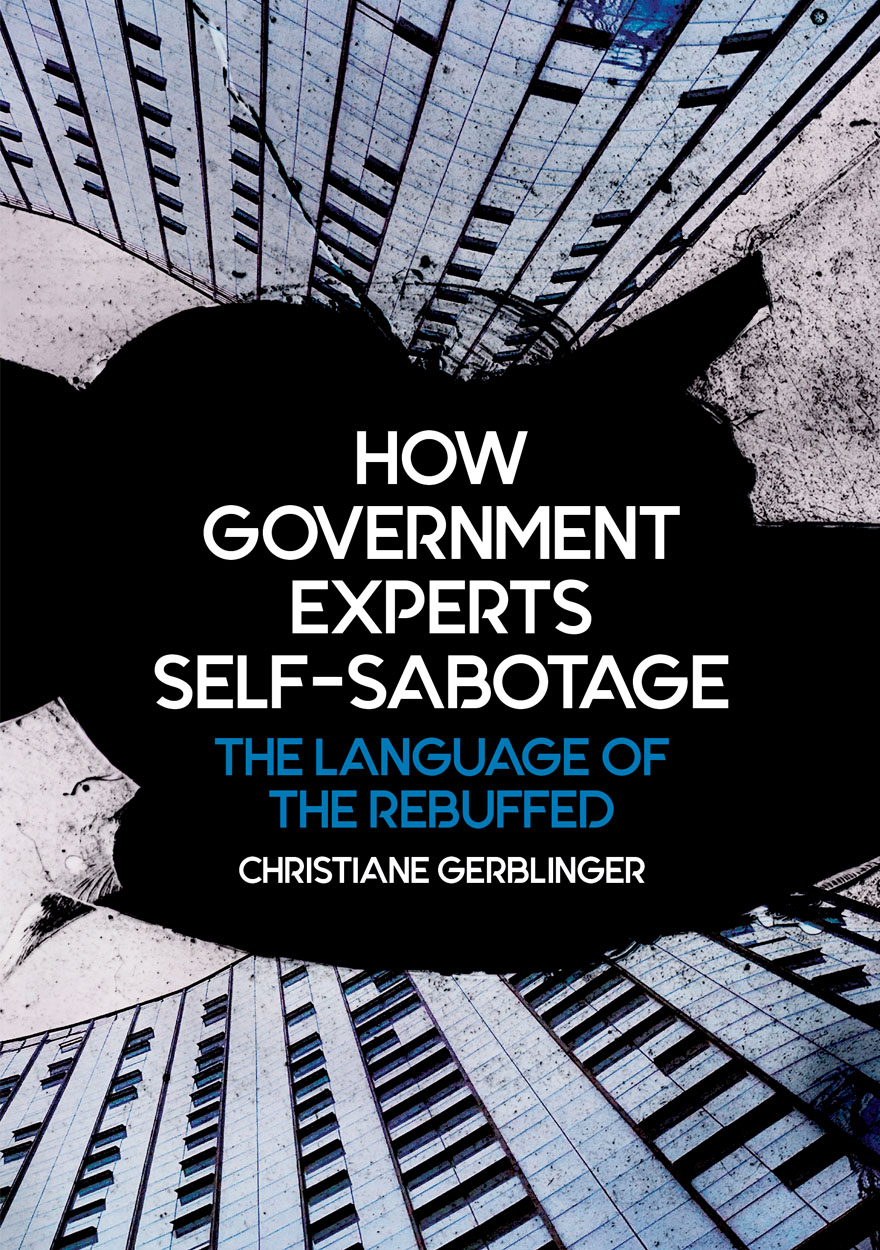
How Government Experts Self-Sabotage »
The Language of the Rebuffed
Authored by: Christiane Gerblinger
Publication date: December 2022
After official policy advice to governments is publicly released, governments are often accused of ignoring or rejecting their experts. Commonly represented as politicisation, this depiction is superficial. Digging deeper, is there something about the official advice itself that makes it easy to ignore?
Instead of lamenting a demise of expertise, Christiane Gerblinger asks: does the expert advice of policy officials feature characteristics that invite its government audience to overlook or misread it? To answer this question, Gerblinger critically examines official policy advice and finds the language of the rebuffed: government experts reluctant to disclose what they know so as to accommodate political circumstances. She argues that this language evades stable meaning and diminishes the democratic right of citizens to scrutinise the work of government.
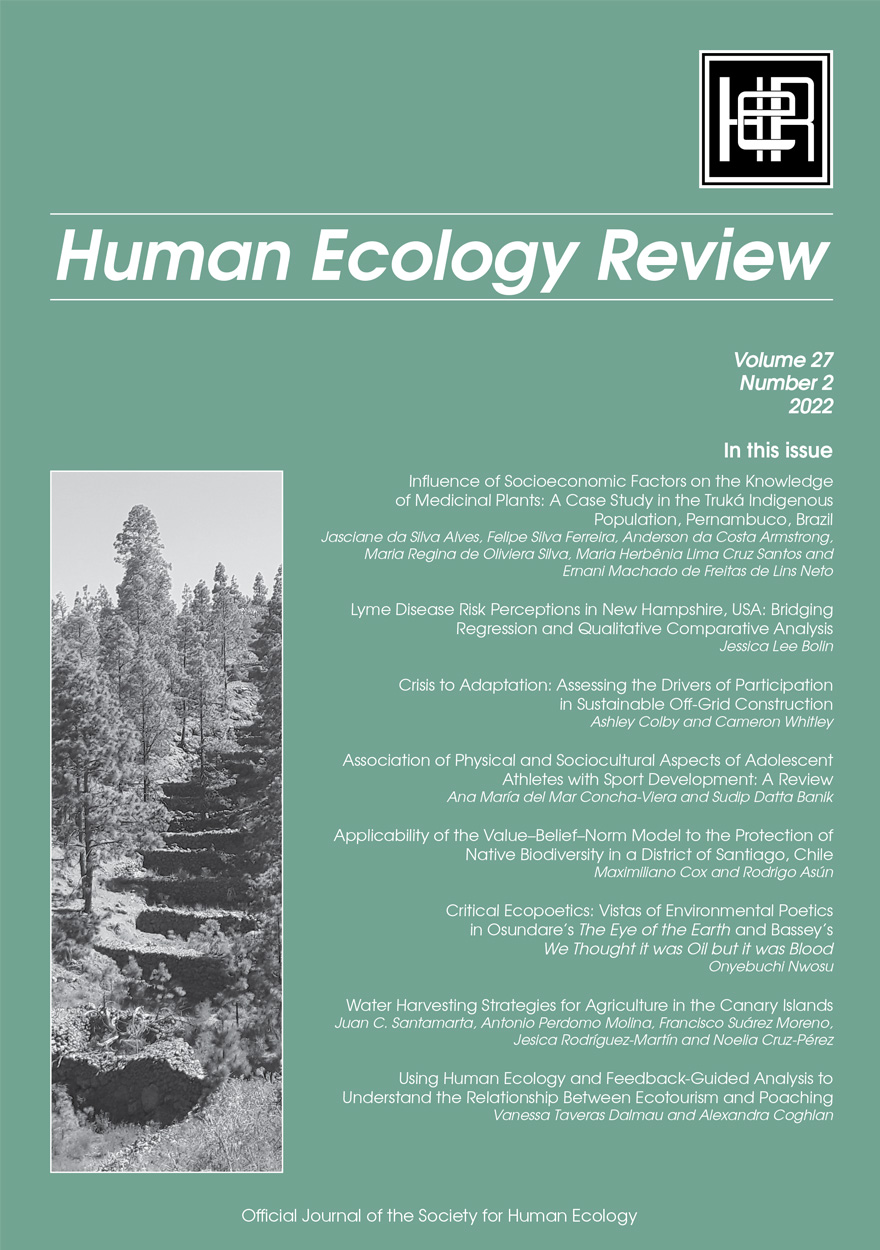
Human Ecology Review: Volume 27, Number 2 »
Publication date: December 2022
Human Ecology Review 27(2) features contributions from researchers from around the world, including Brazil, the United States, Mexico, Chile, Australia, Uruguay, Spain, and Nigeria. Studies presented include the indigenous Truká people’s knowledge of medicinal plants in Pernambuco, Brazil (Alves et al.); perceptions of Lyme disease risk in New Hampshire, USA (Bolin); social and physical aspects of adolescent sport development (Concha-Viera and Datta Banik); the role of ecopolitics and ecopoetics in promoting environmental concerns about and resistance to oil exploration in Africa (Nwosu); traditional water harvesting and conservation in arid regions of the Canary Islands (Santamarta et al.); feedback-guided analysis of ecotourism and poaching in the Dominican Republic (Taveras Dalmau and Coghlan); motivations for participation in off-grid ecovillages, featuring a case study from Uruguay (Colby and Whitley); and biodiversity protection in Santiago, Chile (Cox and Asún).
Download for free
Not available for purchase
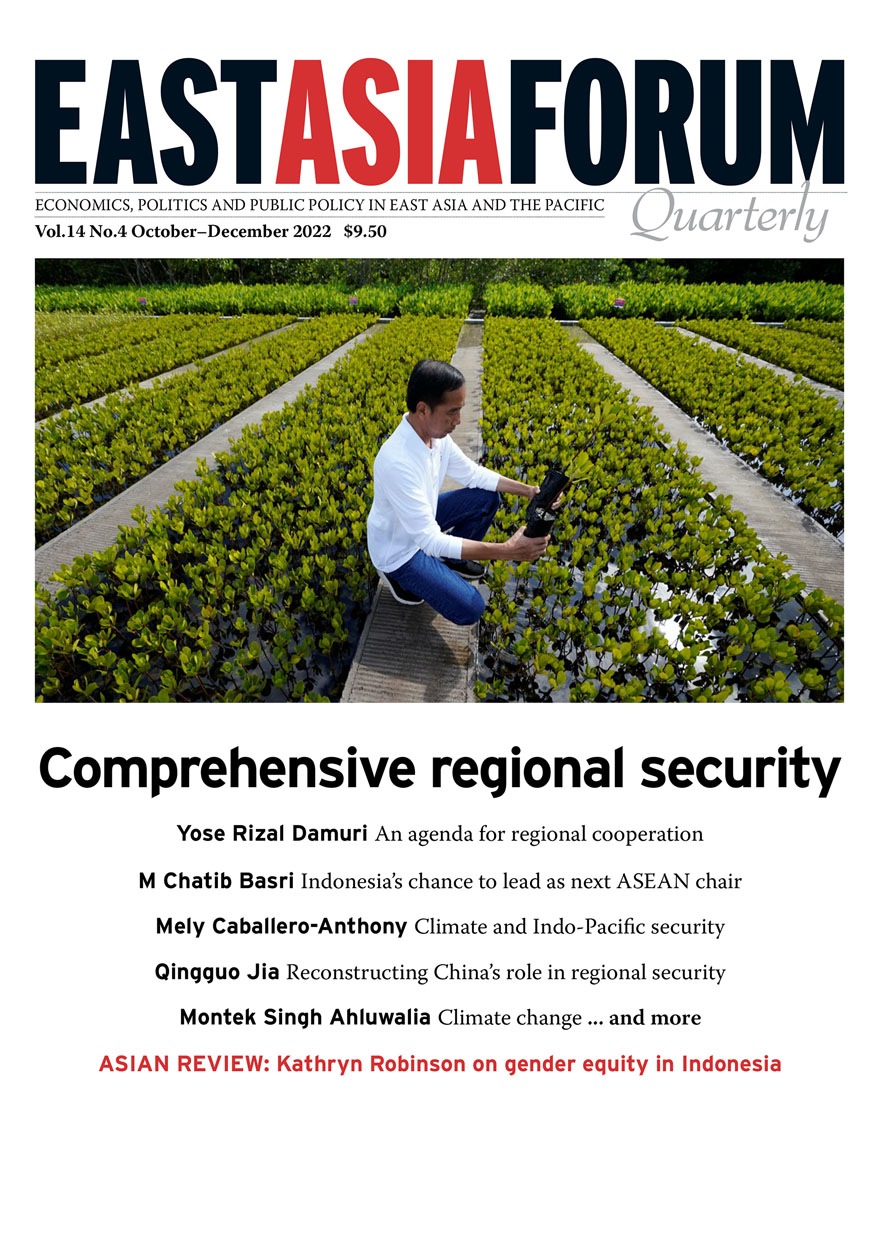
East Asia Forum Quarterly: Volume 14, Number 4, 2022 »
Publication date: December 2022
Southeast Asian nations have long understood that effective national security goes well beyond military preparedness, encompassing a variety of ‘non-traditional’ security issues. This idea is at the heart of political cooperation within ASEAN and competes with traditional notions of regional security in East Asia. But the vocabulary that has developed in the face of growing geopolitical tensions—decoupling, dual circulation, friendshoring, ‘strategic’ supply chains, securitisation—suggests that the big powers are working towards their own notion of comprehensive security.
Contributors to this issue of East Asia Forum Quarterly recognise that comprehensive regional security—an approach that embraces economic, environmental and energy security as well as military interests and considers how they are secured within today’s economically interdependent and politically cooperative regional system—can only be secured collectively: one country’s resilience to climate change, or its access to free and well-served markets for energy and food, cannot come at the expense of others.
Download for free
Not available for purchase

China’s Transition to a New Phase of Development »
Edited by: Ligang Song, Yixiao Zhou
Publication date: November 2022
The Chinese economy is currently undergoing fundamental changes. In this context, the 2022 China Update examines the key characteristics of China’s transition towards a new phase of economic growth and development. This year’s update book covers a range of diverse topics that reflect the complex and changing nature of the economy. It explores critical questions: Why does China need a new development paradigm, and what is the best way to achieve it? What are China’s choices when faced with the restructuring of global industrial value chains? What key roles will domestic consumption play in the next phase of China’s development? What does the digital transformation mean for the Chinese economy? What has been the domestic impact of the Covid-19 pandemic on income inequality and labour market outcomes? What pathways exist for China in its transition towards carbon neutrality? How does China’s emissions-trading market compare with that of Europe? How will China’s carbon neutrality strategy affect the Australian economy? What are the political factors influencing bilateral trade flows between China and its trading partners? And what is at stake for China–US relations?
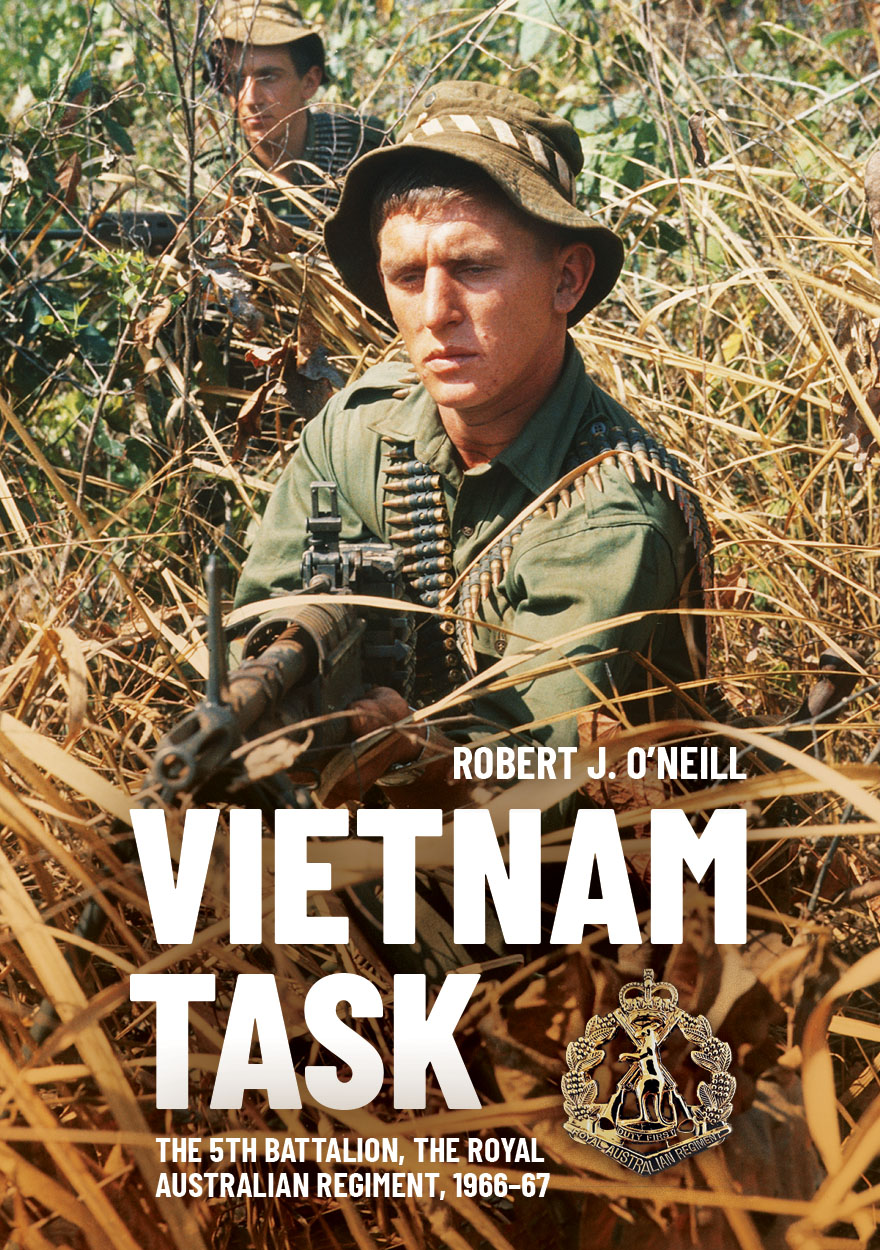
Vietnam Task »
The 5th Battalion, The Royal Australian Regiment, 1966–67
Authored by: Robert O’Neill
Publication date: November 2022
On 24 May 1966, eight hundred men of the 5th Battalion, The Royal Australian Regiment, landed at Nui Dat, in Viet Cong territory. For the next 12 months they were faced with the task of restoring peace, civil law and regular commerce to the Vietnamese of Phuoc Tuy province. This book is a detailed record of those months in the monsoon jungles—of the problems that were faced and the solutions that were found.
Captain O’Neill’s position as battalion intelligence officer enabled him to view the war from the standpoint of the battalion as a whole. However, he does not omit description of personal feelings—towards the Viet Cong, the jungle environment and the Vietnamese people, as well as the other Allied forces involved in the war.
Most of the book was written on the spot in Vietnam. On operations or at Battalion Headquarters, Captain O’Neill jotted down details of the war against the Viet Cong, putting the events of each day in order, often in the small hours of the following morning. Thus not only is this a factual account of the 5th Battalion’s activities over the year; it is also a vivid and compelling picture of the war in Vietnam from the soldier’s point of view.
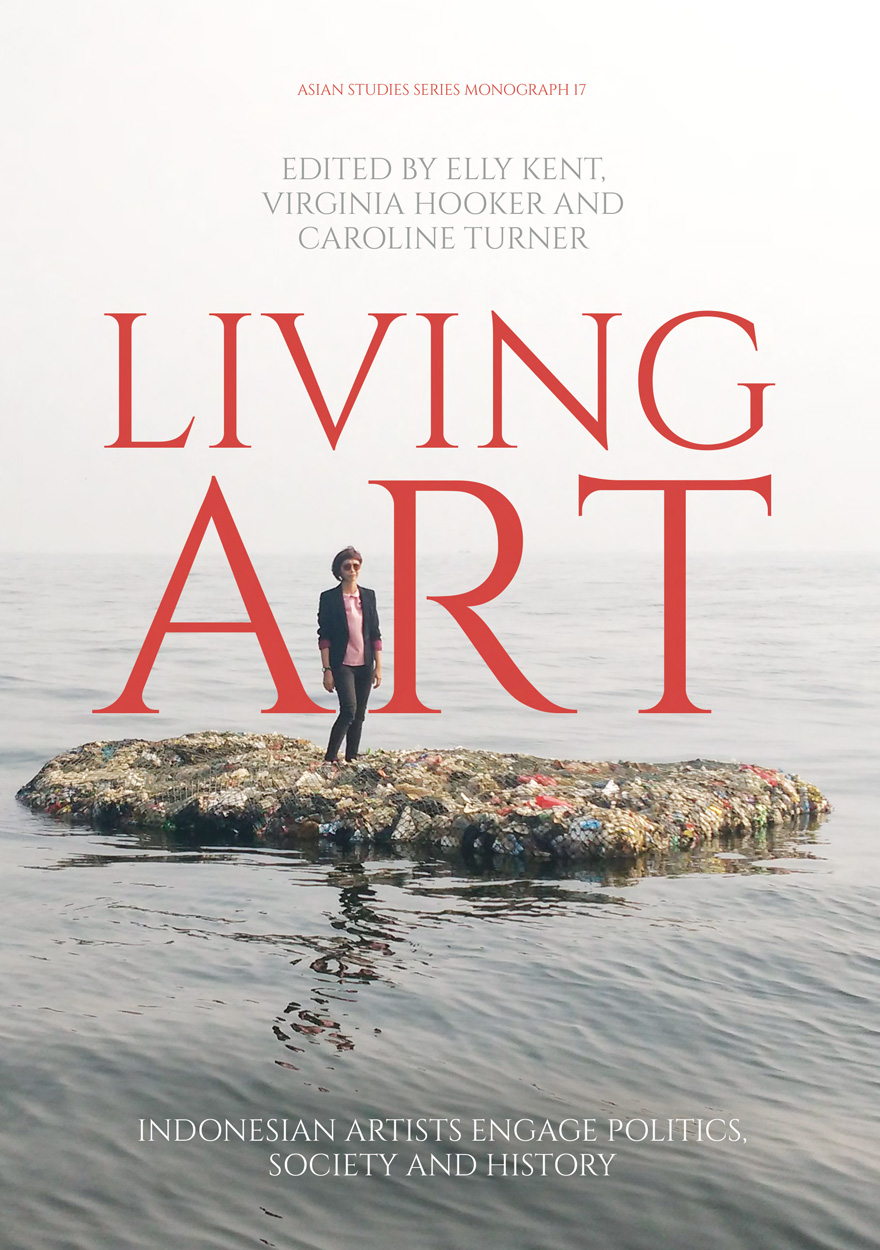
Living Art »
Indonesian Artists Engage Politics, Society and History
Publication date: November 2022
Living Art: Indonesian Artists Engage Politics, Society and History is inspired by the conviction of so many of Indonesia’s Independence-era artists that there is continuing interaction between art and everyday life. In the 1970s, Sanento Yuliman, Indonesia’s foremost art historian of the late twentieth century, further developed that concept, stating: ‘New Indonesian Art cannot wholly be understood without locating it in the context of the larger framework of Indonesian society and culture’ and the ‘whole force of history’. The essays in this book accept Yuliman’s challenge to analyse the intellectual, sociopolitical and historical landscape that Indonesia’s artists inhabited from the 1930s into the first decades of the new millennium, including their responses to the COVID-19 pandemic.
The inclusion of one of Yuliman’s most influential essays, translated into English for the first time, offers those outside Indonesia an insight into a formative period in the generation of new art knowledge in Indonesia. The volume also features essays by T. K. Sabapathy, Jim Supangkat, Alia Swastika, Wulan Dirgantoro and FX Harsono, as well as the three editors (Elly Kent, Virginia Hooker and Caroline Turner). The book’s contributors present recent research on issues rarely addressed in English-language texts on Indonesian art, including the inspirations and achievements of women artists despite social and political barriers; Islam- inspired art; artistic ideologies; the intergenerational effects of trauma; and the impacts of geopolitical change and global art worlds that emerged in the 1990s. The Epilogue introduces speculations from contemporary practitioners on what the future might hold for artists in Indonesia.
Extensively illustrated, Living Art contributes to the acknowledgement and analysis of the diversity of Indonesia’s contemporary art and offers new insights into Indonesian art history, as well as the contemporary art histories of Southeast Asia and Asia more generally.
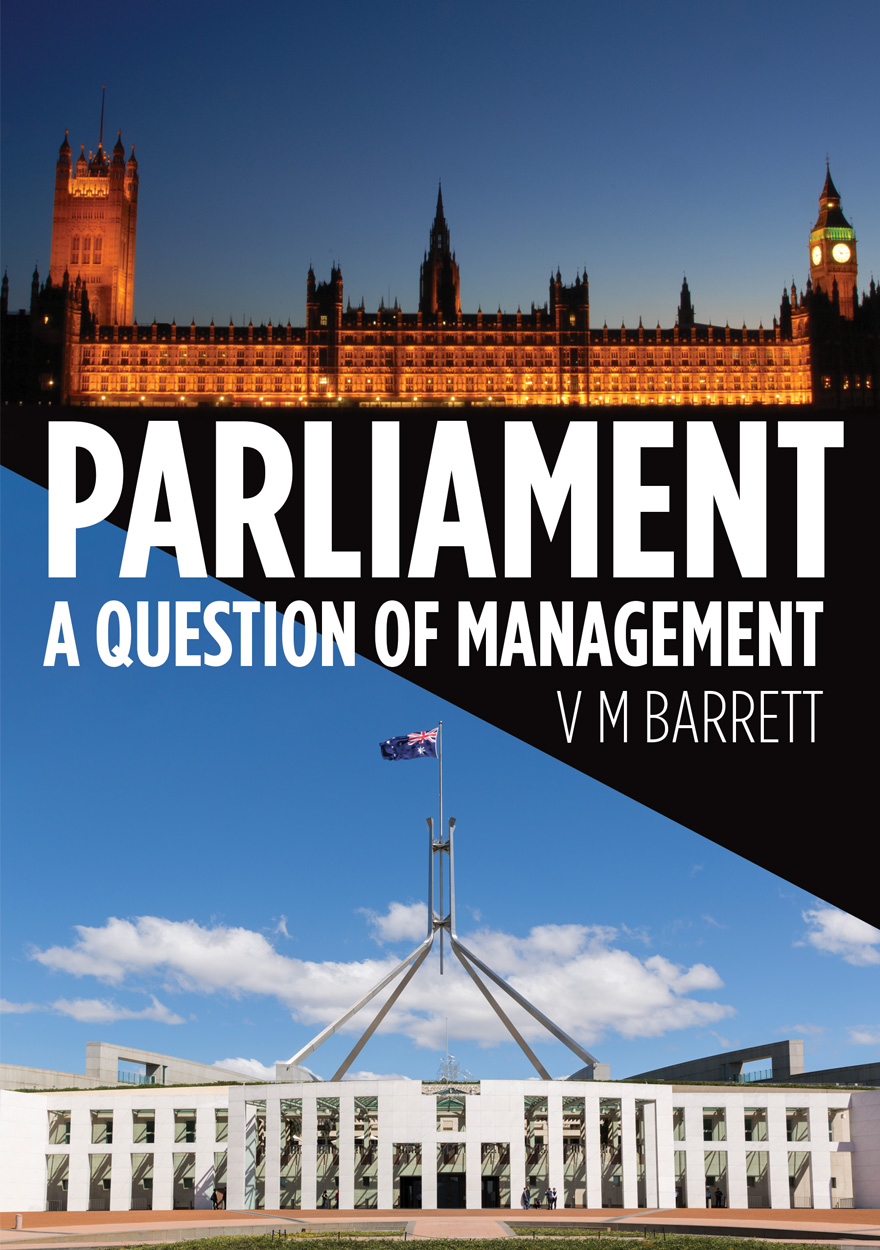
Parliament: A Question of Management »
Authored by: V M (Val) Barrett
Publication date: October 2022
For centuries scholars and practitioners have studied parliament and its potential reform from an institutional perspective. Until now, few authors have addressed in depth the internal relationships among parliamentary actors, their competing beliefs and their influence on parliament’s effectiveness. Parliament is overwhelmingly an agonistic institution, and competition for status, resources, influence and control has pervaded its administration and impeded reform.
Parliaments appear to struggle with the concept of institutional management. The doctrine of exclusive cognisance or sole jurisdiction implies that parliament, and only parliament, should retain control of its internal business and processes. But why is parliament considered to be unique among public institutions, and why do parliaments appear to resist or even defy attempts to manage them more effectively?
At a time when the public is losing confidence in governments, politics and political institutions, parliament’s role as a broker of ideas and a forum for deliberative policymaking is under threat. In an institution where no one has overall authority and direction, staying relevant and managing public expectations present major challenges for its members and administrators.
This book examines parliamentary management in the national parliaments of Australia and the United Kingdom. Without claiming to be a ‘how to’ book, it attempts to provide a relatable account of how parliamentary officials and members of parliament carry out their inherently complex roles and how they might be assisted by contemporary public management approaches.
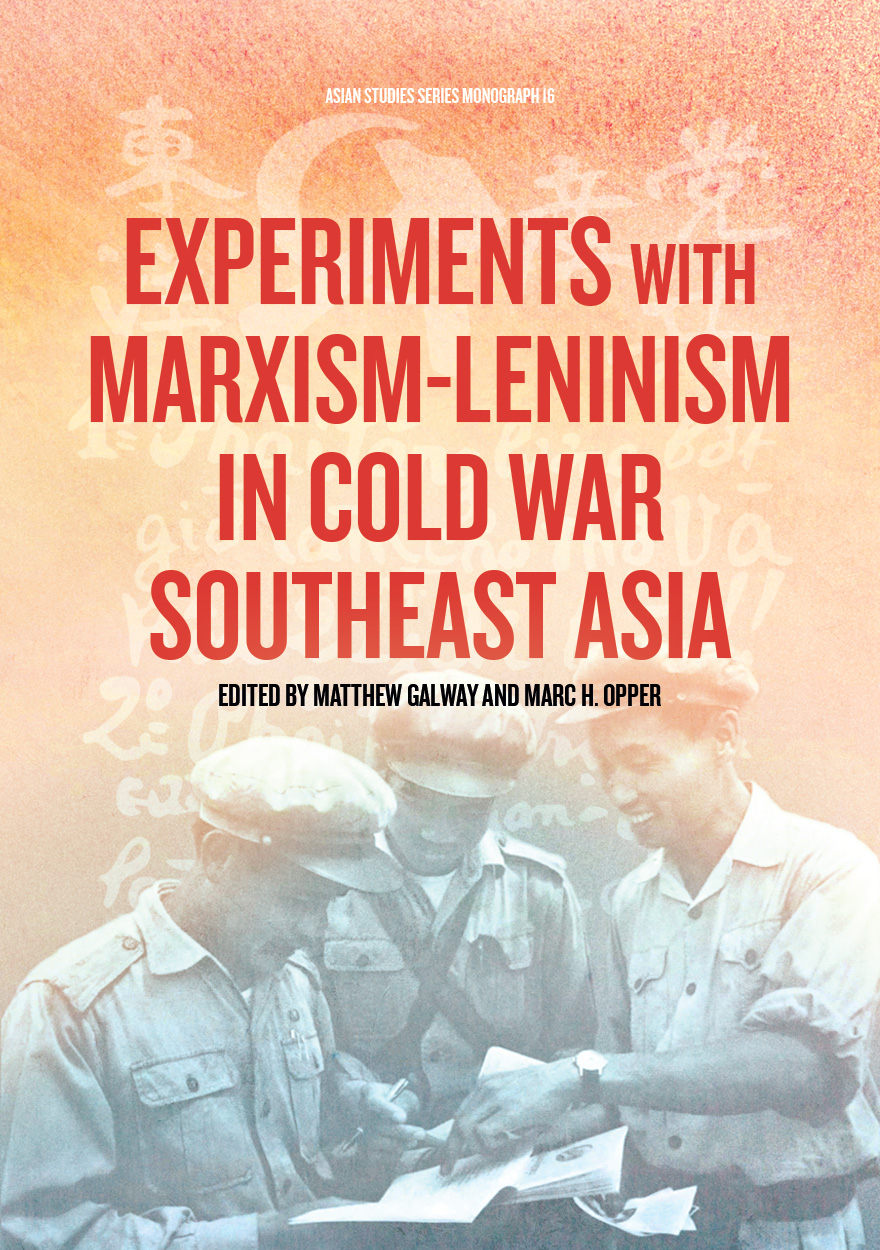
Experiments with Marxism-Leninism in Cold War Southeast Asia »
Edited by: Matthew Galway, Marc H. Opper
Publication date: September 2022
One of the most contentious theatres of the global conflict between capitalism and communism was Southeast Asia. From the 1920s until the end of the Cold War, the region was racked by international and internal wars that claimed the lives of millions and fundamentally altered societies in the region for generations. Most of the 11 countries that compose Southeast Asia were host to the development of sizable communist parties that actively (and sometimes violently) contested for political power. These parties were the object of fierce repression by European colonial powers, post-independence governments and the United States. Southeast Asia communist parties were also the object of a great deal of analysis both during and after these conflicts.
This book brings together a host of expert scholars, many of whom are either Southeast Asia–based or from the countries under analysis, to present the most expansive and comprehensive study to date on ideological and practical experiments with Marxism-Leninism in Southeast Asia. The bulk of this edited volume presents the contents of these revolutionary ideologies on their own terms and their transformations in praxis by using primary source materials that are free of the preconceptions and distortions of counterinsurgent narratives. A unifying strength of this work is its focus on using primary sources in the original languages of the insurgents themselves.
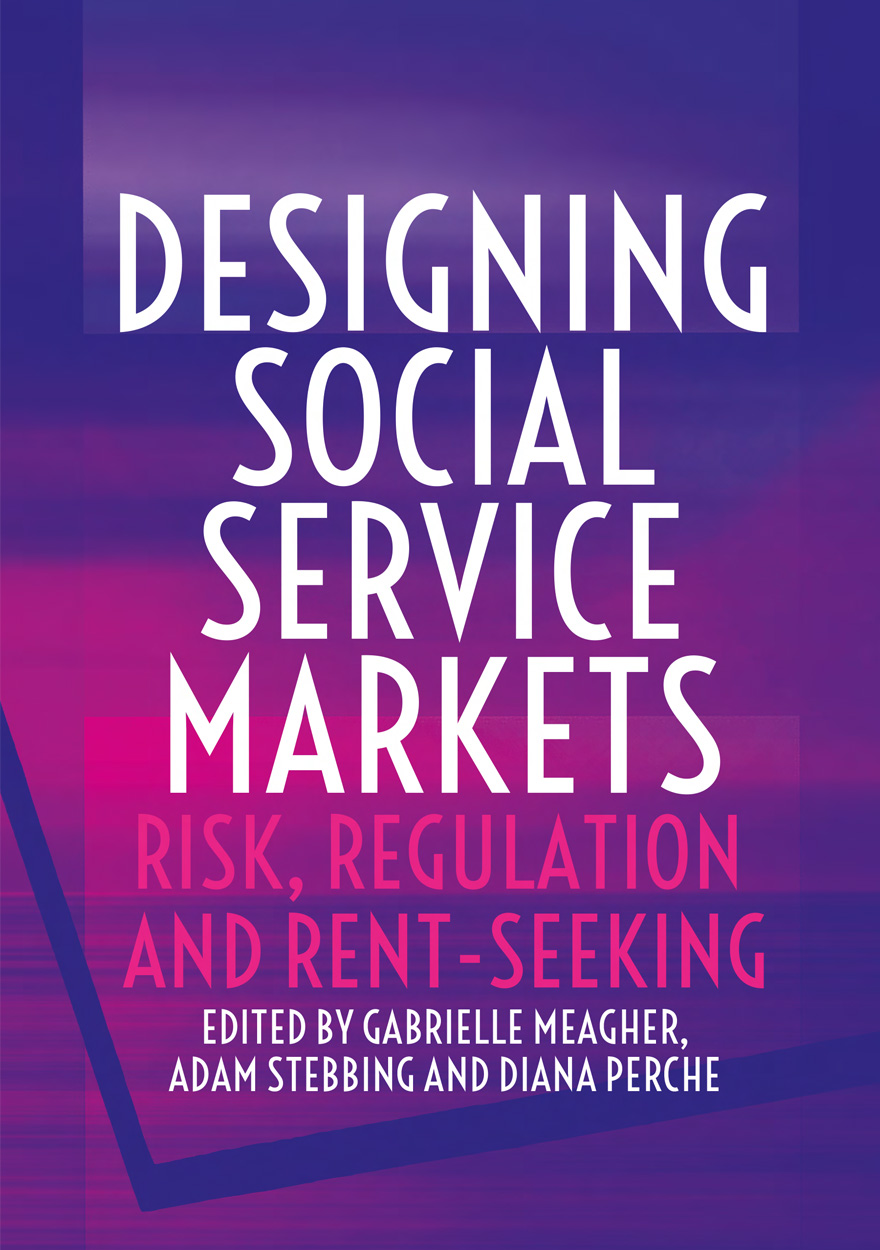
Designing Social Service Markets »
Risk, Regulation and Rent-Seeking
Publication date: September 2022
Governments of both right and left have been introducing market logics and instruments into Australian social services in recent decades. Their stated goals include reducing costs, increasing service diversity and, in some sectors, empowering consumers. This collection presents a set of original case studies of marketisation in social services as diverse as family day care, refugee settlement, employment services in remote communities, disability support, residential aged care, housing and retirement incomes. Contributors examine how governments have designed these markets, how they work, and their outcomes, with a focus on how risks and benefits are distributed between governments, providers and service users. Their analyses show that inefficiency, low‑quality services and inequitable access are typical problems. Avoiding simplistic explanations that attribute these problems to either a few ‘bad apple’ service providers or an amorphous neoliberalism that is the sum of all negative developments in recent years, the collection demonstrates the diversity of market models and examines how specific market designs make social service provision susceptible to particular problems. The evidence presented in this collection suggests that Australian governments’ market-making policies have produced fragile and fragmented service systems, in which the risks of rent-seeking, resource leakage and regulatory capture are high. Yet the design of social service markets and their implementation are largely under political control. Consequently, if governments choose to work with market instruments, they need to do so differently, working with principles and practices that drive up both quality and equality.
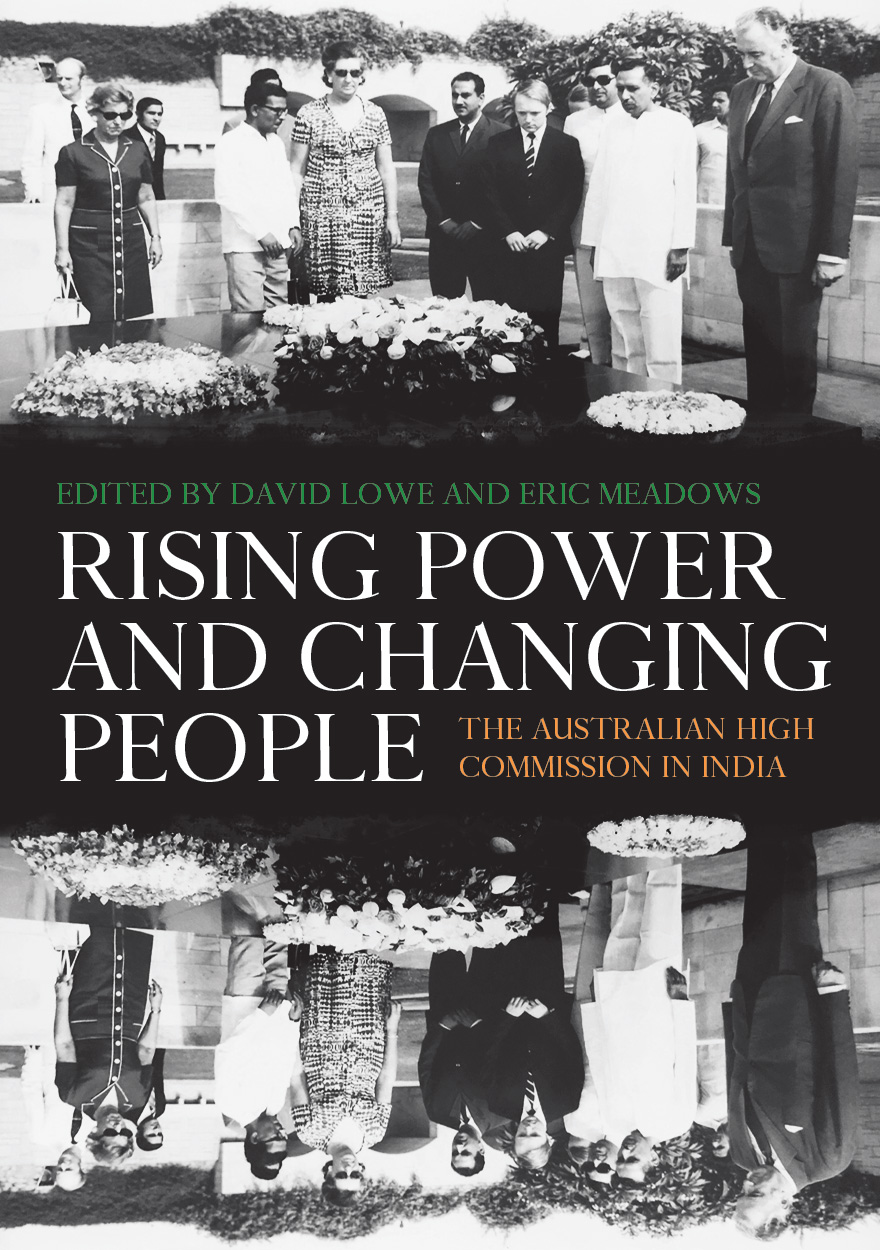
Rising Power and Changing People »
The Australian High Commission in India
Edited by: David Lowe, Eric Meadows
Publication date: September 2022
Beginning in 1943–44, Australia’s relationship with India is its oldest continuous formal diplomatic relationship with any Asian country. The early diplomatic exchanges between Australia and India have teased for their suggestions of potential unrealised, for opportunities missed, especially when compared with the very recent excitement about the future of Australia–India relations. How did Australia’s representatives and their staff in New Delhi negotiate the many dimensions of Australia–India relations? This book brings together expert analyses of the work of the Australian High Commission, its key people and the challenges they faced in New Delhi.
The important India Economic Strategy to 2035 report handed to the Australian Government in mid-2018 begins with the comment: ‘Timing has always been a challenge in Australia’s relationship with India.’ As the Australian Government works to implement some of the ambitious recommendations in the report, this book adds to our understanding of why timing has been a challenge, and how those at the coalface of the relationship have grappled with it.
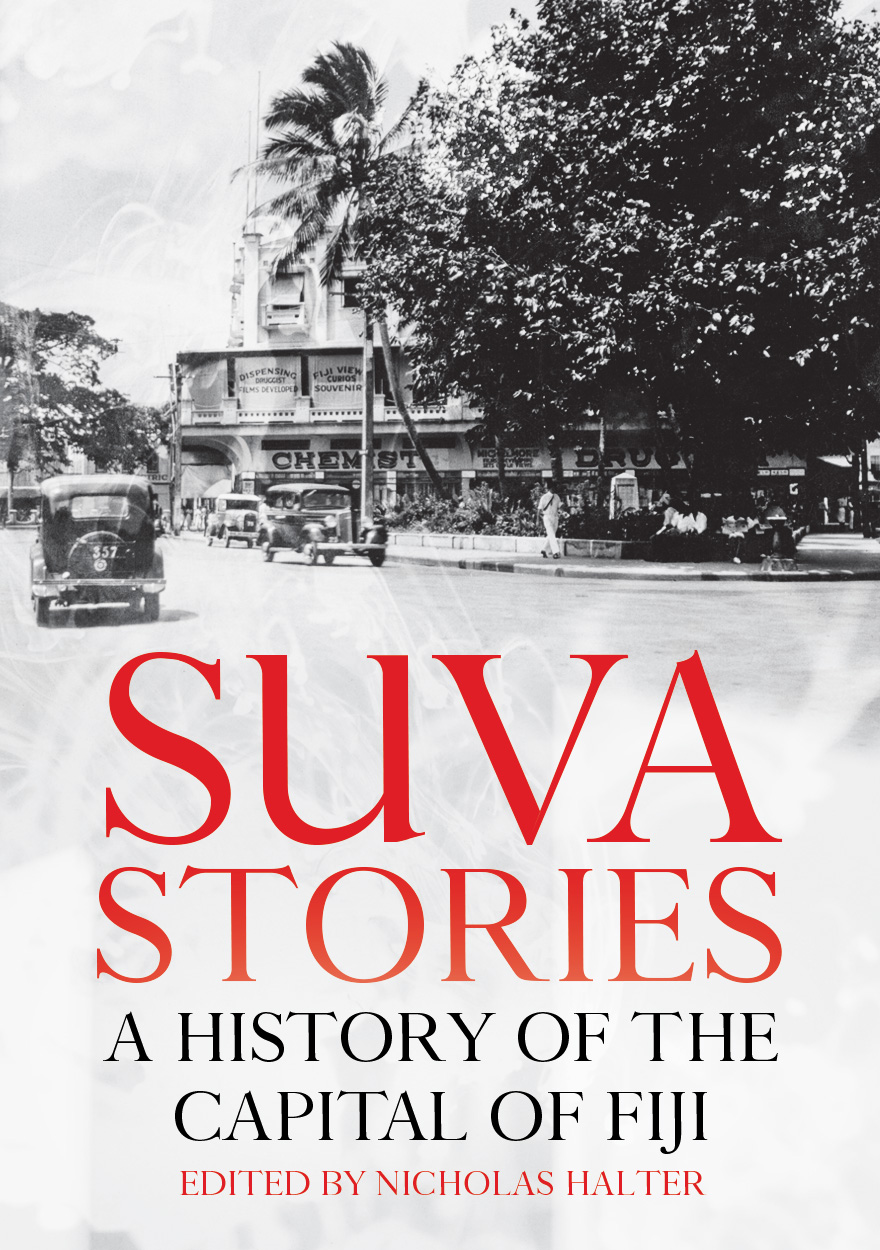
Suva Stories »
A History of the Capital of Fiji
Edited by: Nicholas Halter
Publication date: September 2022
Suva Stories explores a fascinating tapestry of histories in one of the Pacific’s oldest and most culturally diverse urban centres, the capital of Fiji. Charting the trajectory of Suva from indigenous village to colonial hub to contemporary Pacific metropolis, it draws on a rich colonial archive and moving personal memoirs that bear witness to their time. The diverse contributions in this volume form a complex mosaic of urban lives and histories that contribute fresh insights into historical and ongoing debates about race, place and belonging. Suva Stories is a valuable companion to those seeking to engage with the city’s pasts and present, and will prompt new conversations about history and memory in Fiji.
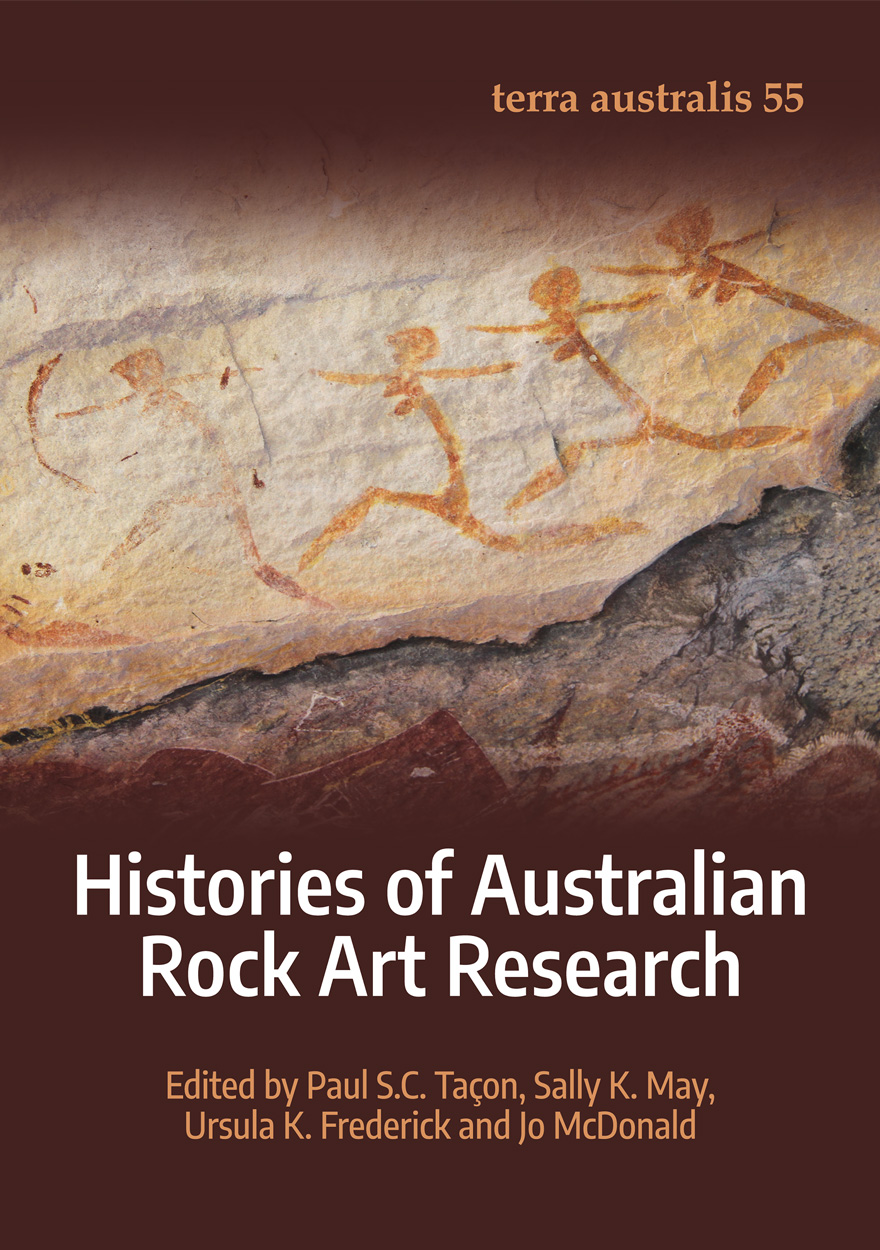
Histories of Australian Rock Art Research »
Publication date: September 2022
Australia has one of the largest inventories of rock art in the world with pictographs and petroglyphs found almost anywhere that has suitable rock surfaces – in rock shelters and caves, on boulders and rock platforms. First Nations people have been marking these places with figurative imagery, abstract designs, stencils and prints for tens of thousands of years, often engaging with earlier rock markings. The art reflects and expresses changing experiences within landscapes over time, spirituality, history, law and lore, as well as relationships between individuals and groups of people, plants, animals, land and Ancestral Beings that are said to have created the world, including some rock art. Since the late 1700s, people arriving in Australia have been fascinated with the rock art they encountered, with detailed studies commencing in the late 1800s. Through the 1900s an impressive body of research on Australian rock art was undertaken, with dedicated academic study using archaeological methods employed since the late 1940s. Since then, Australian rock art has been researched from various perspectives, including that of Traditional Owners, custodians and other community members. Through the 1900s, there was also growing interest in Australian rock art from researchers across the globe, leading many to visit or migrate to Australia to undertake rock art research. In this volume, the varied histories of Australian rock art research from different parts of the country are explored not only in terms of key researchers, developments and changes over time, but also the crucial role of First Nations people themselves in investigations of this key component of their living heritage.



